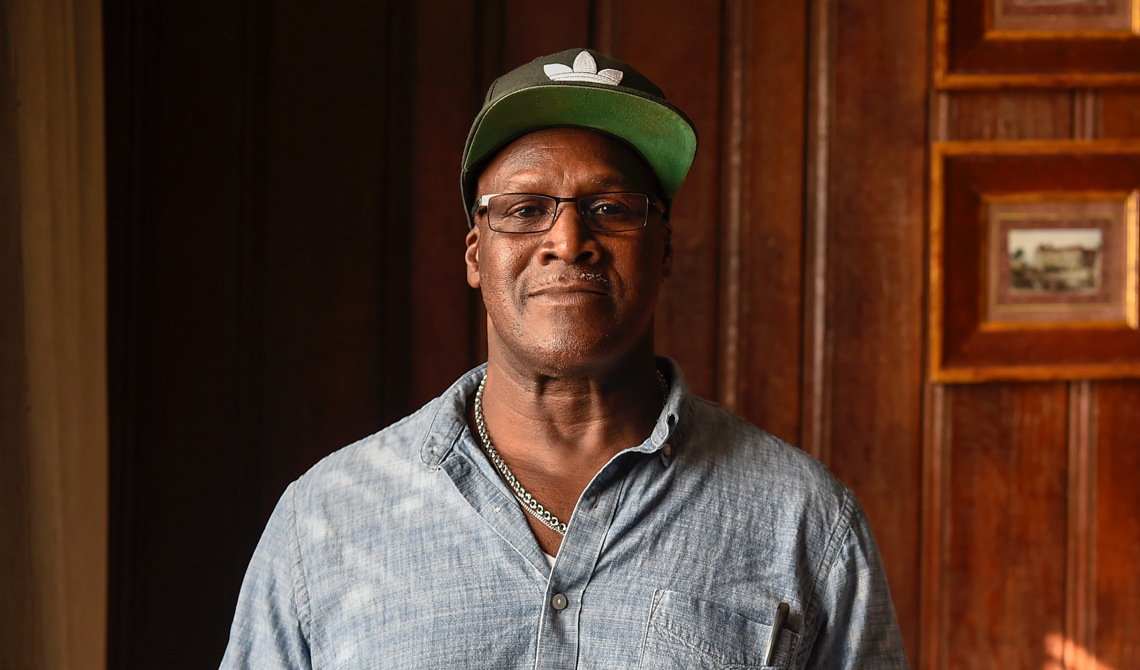Malcolm Alexander

Ineffective trial lawyer and flawed eyewitness identification procedure destroyed the lives of Malcolm Alexander and his family for 38 years.
Mr. Alexander always maintained his innocence of the Nov. 8, 1979, rape of the owner of a new antique store on Whitney Avenue in Gretna, Louisiana. The victim, who was white, was grabbed from behind in the empty store by a Black man and taken to a small, dark, private bathroom in the back of the store where she was raped from behind with a gun to her head.
In February 1980, Mr. Alexander, who is Black, had a consensual encounter with a white woman who asked him for money and then later accused him of sexual assault. This encounter, which was uncorroborated and later dropped by the police, prompted police to place Mr. Alexander’s photo in a photo array that was shown to the victim over four months after she was attacked at gunpoint by a complete stranger. The assailant was behind the victim for the entirety of the crime, and her opportunity to view him was extremely limited.
According to police reports, the victim “tentatively” selected Mr. Alexander’s photo. Research has shown that multiple identification procedures can contaminate a witness’s memory, causing a witness to become confused about whether he or she recognizes the person from the event or the earlier procedure while also making the witness more confident in his or her identification. Yet, police conducted a physical line-up three days later that included Mr. Alexander. Mr. Alexander was the only person from the photo array who was shown again to the victim in the physical line-up. The lead detective on the case was not available to conduct the line-up, so another detective conducted the procedure. According to the report of the lineup, the victim made a “possible” identification and the word “tentative” was written next to Mr. Alexander’s line-up number. However, when the original detective returned later that day and took a statement from the victim, the victim’s confidence was recorded as 98% sure that Mr. Alexander was the assailant, and by the time she got to trial she testified that she had no doubt that he was the assailant. Blood type testing of the rape kit was available at the time that could have either supported the victim’s identification or proven that Mr. Alexander wasn’t the perpetrator but was never sought.
A review of the trial record reveals that Mr. Alexander’s attorney failed to make court appearances and to file important pleadings, including a motion challenging the identification. A review of the one-day trial transcript reveals that the attorney, who was subsequently disbarred, failed to make an opening statement, did not call any witnesses for the defense, failed to adequately cross-examine the state’s witnesses about the identification and presented a closing argument that was a mere four pages of the 87-page transcript. Mr. Alexander received a life sentence for the guilty verdict. Although the attorney promised to file an appeal of the verdict, he never filed it.
The Innocence Project first took up Mr. Alexander’s case in 1996 but quickly learned that the rape kit and a semen-stained towel had been destroyed only four years after his conviction. Mr. Alexander never gave up and continued the fight to prove his innocence. In 2013, hair evidence recovered from the location where the rape took place was found at the Jefferson Parish Sheriff’s Office Crime Lab. The Innocence Project brought on Innocence Project New Orleans as local counsel, and the organizations sought DNA testing of the hair evidence. Three crime scene hairs had the same DNA profile that did not match to Mr. Alexander or the victim.
Based on this information and subsequent conversations with the victim, the Jefferson Parish District Attorney’s office moved with the Innocence Project to vacate Mr. Alexander’s conviction and dismiss the indictment in court.
Mr. Alexander was awaited by his son and grandson (both named Malcolm) as well as his mother and sister.

Time Served:
38 years
State: Louisiana
Charge: Aggravated Rape
Conviction: Sexual Assault
Sentence: Life without parole
Incident Date: 11/08/1979
Conviction Date: 11/05/1980
Exoneration Date: 01/30/2018
Accused Pleaded Guilty: No
Case Year: 1980
Contributing Causes of Conviction: Eyewitness Misidentification, Government Misconduct, Inadequate Defense
Death Penalty Case: No
Race of Exoneree: African American
Race of Victim: Caucasian
Status: Exonerated by Other Means
Alternative Perpetrator Identified: No
Type of Crime: Sex Crimes
Year of Exoneration: 2018